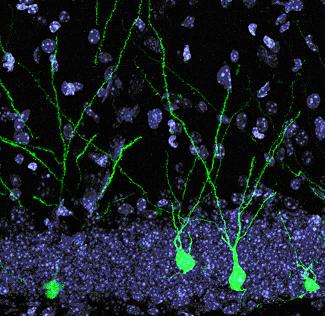Video Games as Alternative Therapy June 11, 2007
Posted by schoolsnoop in 9-5-4, add, add parents, adhd, aging, alternative treatment, aspergers, attention deficit hyperactivity disorder, attention training, brain, brain injury, camp, children, cognitive decline, concentration, dementia, education, ld, learning disability, medication, memory, memory loss, mTBI, neurogenesis, neuroscience, news, parenting, parents, play attention, Sparks of Genius, summer, underachieve, video games.2 comments
A new video game might prove to be a very productive use of time for young cancer patients: It helps kids fight their diseases figuratively and literally.The game, called “Re-mission,” is a 20-level journey through the bodies of fictional patients suffering from different types of cancer, and of course, it can be played by adults and healthy folks as well. But the primary idea is to give patients a sense of control over their disease.
Children and adults around the world have embraced video games, with both positive and negative results. Here’s another shot in the arm for the folks who see video games as more than just an excuse to stay inside on a sunny day. Sparks of Genius uses video games as alternative therapy for Attention Deficit Hyperactivity Disorder (ADD or ADHD), Asperger’s Syndrome, Memory training, to fight off Cognitive Decline, and build any number of Cognitive Skills including executive function.
Click here to check out their new Summer Brain Training Boot Camp!
This article reprinted with permission from Rotten Apples: News from the front lines of America’s War on Education.
Tips on Parenting and Homework June 10, 2007
Posted by edukfun in add, add parents, adhd, anger, aspergers, attention deficit hyperactivity disorder, attention training, challenged, children, education, homework, ld, learning disability, parenting, parents, school, teacher.add a comment
10 Steps to Argument-Free Homework
Get homework done quickly and efficiently without wearing out your vocal cords.
- De-escalate.
- Use positive reinforcement.
- Express interest in homework, schoolwork and grades.
- Treat homework time like it is a big deal.
- Do your homework visibly.
- Spend 15 minutes negotiating Homework Expectations.
- Write down and post the Homework Expectations.
- Give your child three free passes.
- Reward a Perfect Homework Record.
- Email the teachers!
What about kids with Learning Disabilities?
Challenged Children, those with any kind of learning disability, need the exact same treatment. They need all the rules, reminders and rewards even more! Don’t let their disability fool you: expect them to perform to their 100% capacity. If we settle for less, we do them a disservice.
-From www.whyschoolsux.com
Teach Your Old Brain New Tricks June 7, 2007
Posted by Dr. Rohn Kessler in aging, brain, cognitive decline, concentration, dementia, health, memory, mTBI, neurogenesis, neuroscience, parents.add a comment
“The brains of adult mammals are slowly, constantly churning out new brain cells,” it said recently in LiveScience.
Click here for the full article.
That’s right, adult brain cells can definitely keep growing and actually change their structures in response to new experiences.
The growth is much smaller than what goes on during the critical period of development, but the fact that it goes on at all is earth-shattering, “said a neuroscientist at the Massachusetts Institute of Technology (MIT).
New research shows these new adult brain cells may actually help old cells adapt to new experiences and be used to rejuvenate our aging brains.
“Young neurons are generated in two areas of the brain: the hippocampus and the olfactory bulb. The hippocampus, in particular, appears almost like a fountain of youth. The new cells produced in the area, said neuroscientist Hongjun Song, make the whole system younger.”

New neurons are labeled to show green fluorescence in the adult mouse brain.
Credit: Kurt Sailor, Guo-li Ming and Hongjun Song
Most of us know how fast children learn — much faster than we do (I’m 64). Their brain plasticity is phenomenal. But we adults can continue to adapt to new experiences even though our brains are more hardwired than our children’s brains.
At Sparks of Genius we see this all the time in children as young as six and adults in their eighties. Both young and old are capable of new learning.
Dr. Paul Nussbaum, a clinical neuropsychologist, writes how important new learning is for adults, especially the elderly. Not any kind of learning but novel, rich and complex learning.
In other words, engage your mind in mentally stimulating activities!
Adult and elderly clients at Sparks of Gemius use a special combination of computer programs to train their brain for more successes in life. They can improve cognitive skills like memory, attention, listening and thinking. The can even increase the central processing speed of their brains.
The Sparks of Genius message to adults and seniors is: “Defy labels. Move beyond limitations decided by others. You can do more than you ever thought you could.”
Dr. Rohn Kessler